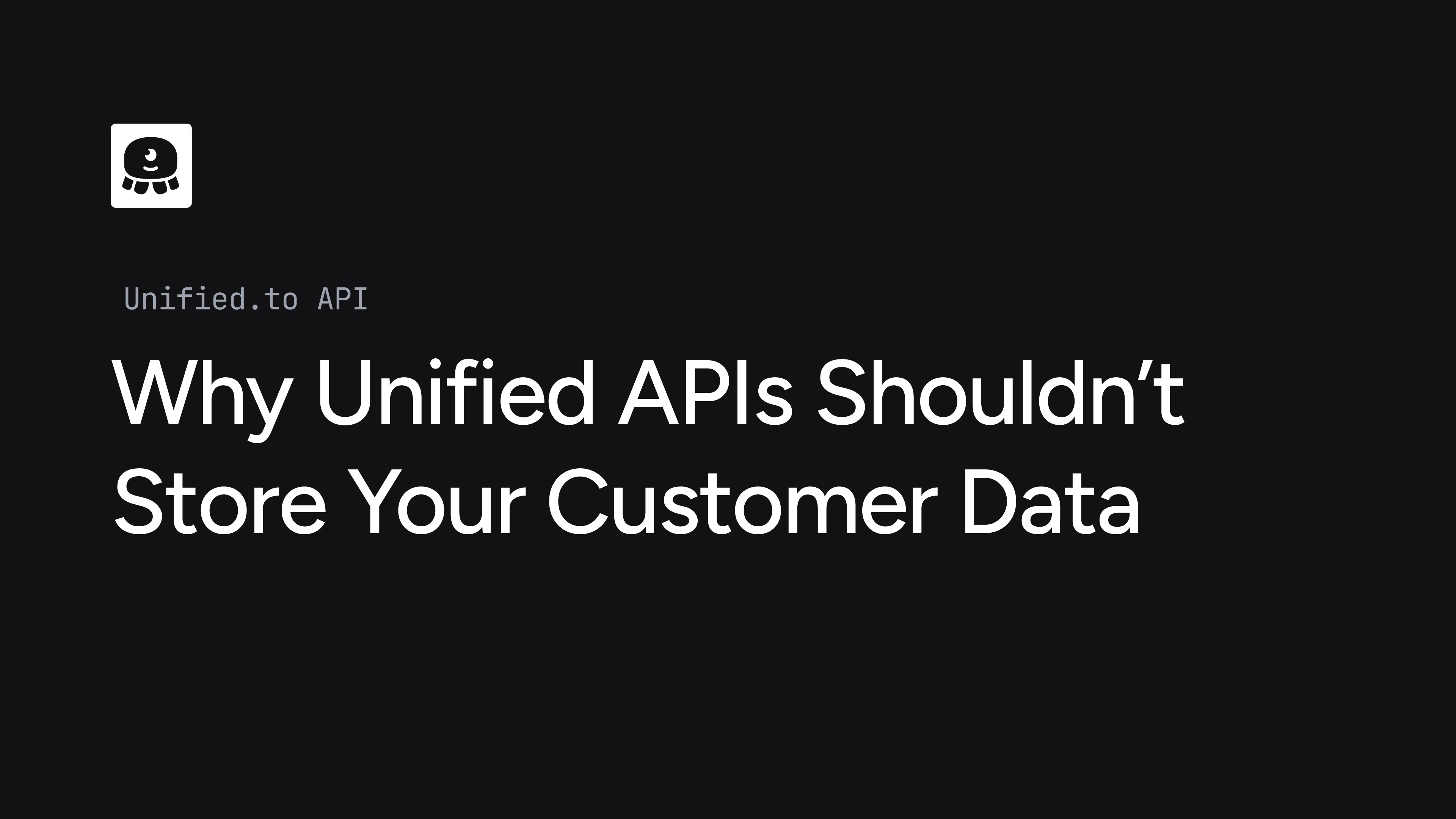Why Unified APIs Shouldn't Store Your Customer Data
May 30, 2025

In the modern SaaS landscape, integrations are no longer optional. They're core to product value, customer stickiness, and differentiation. But with more integrations comes a bigger surface area for security and compliance risks.
That's why many product and engineering teams are re-evaluating one of the most overlooked aspects of integration architecture: data storage.
The Hidden Risk of Stored Data
Most unified API and iPass providers store some or all of your customers' data, from access tokens to payload logs to cached API responses.
This is convenient for the vendor, but it comes at a cost to you:
- Expanded attack surface: A breach of the integration provider's database can expose your customer data.
- Compliance burden: GDPR, CCPA, and SOC 2 all treat stored third-party data as your responsibility and legal liability.
- Data governance drift: Every copy of customer data adds complexity to your security posture.
- Vendor lock-in: Migrating away becomes harder when another system holds your data.
Unified.to: No Storage, No Surprises
Unified.to was built from day one on zero-data storage. That means:
- No payloads cached
- No tokens stored (optional)
- No customer data logged
All API calls are proxied in real-time. Data flows directly from the source system to your infrastructure. Unified.to never stores, mirrors, or indexes third-party records.
This model isn't just about philosophy, it materially reduces your security and compliance overhead.
Easier Path to Compliance
By avoiding data storage, Unified.to simplifies your path to certifications and audits:
- SOC 2 Type II compliant
- GDPR-ready as a sub-processor
- Supports customer-side AWS Secrets Manager for credential storage
- Offers IP whitelisting and webhook signing for access control
- Provides auditability through shipped logs (e.g., Datadog)
Instead of inheriting a third-party's data lifecycle and breach risk, you stay in full control.
Designed for Least Privilege
Unified.to supports OAuth 2 and customer-managed credentials. You can:
- Keep all access tokens inside your AWS Secrets Manager
- Scope integrations to the exact permissions you need
- Revoke access without triggering backend cleanup or data deletion processes
This aligns with a modern least-privilege security model: only store what you need, only expose what you must, and avoid third-party storage entirely.
A More Secure Way to Build
Storing customer data should be a deliberate choice, not a default side effect of using an integration vendor.
Unified.to flips the model:
- No cache to compromise
- No logs to leak
- No backups to sanitize
If you need historical data, Unified.to streams normalized records directly into your data warehouse or database—under your control, on your terms.
Integration Architecture Matters: A Data Storage Comparison
| Feature | Unified.to | Merge.dev | Paragon | Apideck |
|---|---|---|---|---|
| Customer data stored | No | Yes (cached) | Yes (cached + logs) | Yes (cached responses) |
| Tokens cached | Optional | Yes | Yes | Yes |
| Data control | Fully yours | Shared with vendor | Shared with vendor | Shared with vendor |
| Compliance surface | Minimal | High | High | High |
| Lock-in risk | Low | High | High | High |
Security isn't just about encryption and audits. It's about architectural choices. If you're building an integration layer into your product, choose one that minimizes risk by design.
Unified.to is the only unified API platform built from the ground up with zero customer data storage. That means faster compliance reviews, tighter security, and more control over your architecture.
Start your free trial or book a demo to learn more about real-time integrations without data liability.
